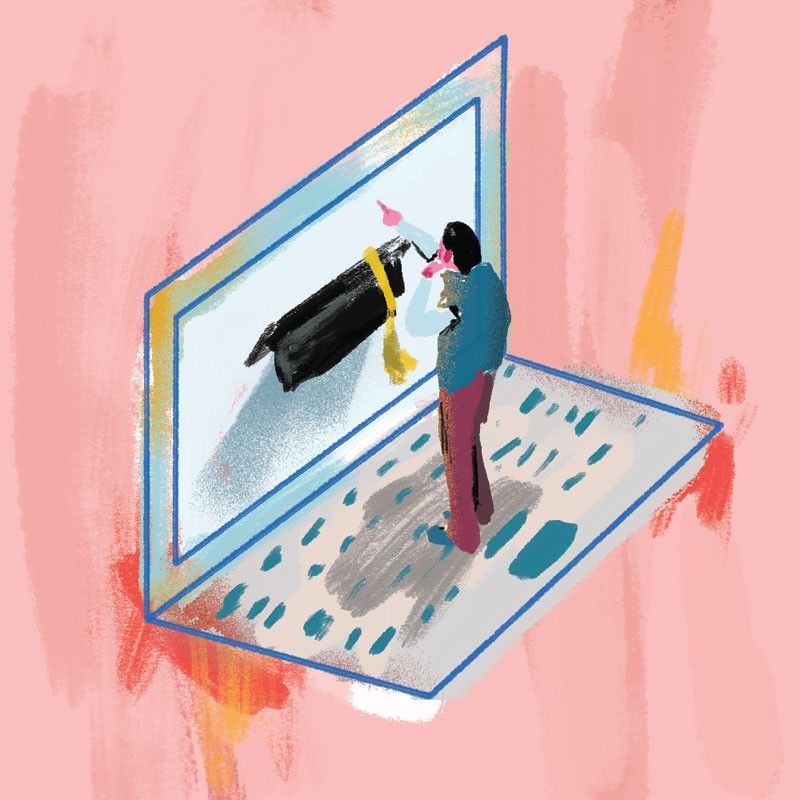HEAD: Facing the present and future challenges through eLearning

MANILA, Philippines — Sarah is a popular singer-actress. Her busy schedule simply won’t allow her to continue her studies through the conventional mode of instruction.
Joaquin, 45, is an overseas Filipino worker who had to work abroad to provide for his growing family. He was unable to finish his undergraduate degree because of various reasons, foremost of which being a lack of resources.
Ashley was a regular student in her high school years, but her varied interests required her to travel, oftentimes out of the country. She found the residential mode of instruction too restrictive so she instead decided to work after graduating from senior high school.
Gilbert is physically challenged but he knows that he has to build his capability so as not to be forever financially dependent upon his family. He knows that education can be the key to realizing his vision.
These are just a few examples among many others who encounter different barriers to studying if the only option available is the conventional or residential way most of us experienced and are familiar with.
Quality Education
Distance education is nothing new to the Philippines. Some of us would probably remember the International Correspondence School that offered short training courses.
In the 1950s through the 1960s, another mechanism of distance education was implemented through radio — through a “School on the Air.”
In 1995, the University of the Philippines pushed further its mission of democratizing access to quality higher education through the establishment of the UP Open University (UPOU).
UPOU’s mission is to be at the forefront in the use of modern information and communication technologies to deliver quality education especially to the marginalized sectors and areas of the country.
The potential of distance education to provide education to many Filipinos was further recognized with the passing of Republic Act 10650, or the Open Distance Learning Act, which provides specific guidelines to enable other HEIs to offer degree programs in the distance education mode of instruction.
Specific to the state colleges and universities, distance education would increase their capacity to accept more students at the tertiary level and expand the coverage of Republic Act 10931, or the Universal Access to Quality Tertiary Education to many more Filipinos wanting to get their college degrees.
Challenges
Present-day buzzwords in the modern workplace include artificial intelligence, data mining, big data, business analytics and other concepts that characterize Industrial Revolution 4.0.
The need to continue learning thus becomes more evident.
With the fast-changing work and life environments, we came to realize that it’s not just continuing education that we need, it’s now lifelong learning — something that was also emphasized in the UN Sustainable Development Goals.
Universities are now challenged to provide life-long learning opportunities which are inclusive and ubiquitous, implying the need for “anyone and anywhere” access. From democratizing access, present and future circumstances necessitate that access to quality learning opportunities be “open.”
The open education practice, which is now a worldwide movement, provides UPOU with the framework to offer another form of public service and honor its commitment of serving the nation through the offering of Massive Open Online Courses.
The objective is to remove the usual barriers to learning like financial constraint, conflict in schedule, and the geographical distance from the education provider, among other things.
The courses can also be accessed using the mobile phone, which further remove the technology barriers if the learner does not have immediate access to a computer and the internet.
‘Sablay’ Dream
While casually browsing my Facebook feeds one morning, my attention was caught by a post entitled, Ang Pangarap kong Sablay.
The usual association with sablay is failure or not being successful. Conversely, in UP, the sablay is a symbol of success as it is the official academic costume of UP graduates.
The narrative in the said Facebook post described the common yet difficult challenges of many students: Having to work while studying (and at times, juggling two jobs just to make ends meet), raising kids especially for single parents and being true to the UP tradition of striving for honor and excellence in both work and studies.
The post continued to say that the person is giving up on her dream of graduating from UP and wearing the sablay as she needs to prioritize her livelihood.
I sent the netizen a private message directing her to explore UPOU and still give her “sablay dream” a chance. She could have a choice from the two full Bachelor’s degree programs that UPOU is offering: Bachelor of Arts in Multimedia Studies and Bachelor of Education Studies.
Of course, she could also have her units earned evaluated for the Associate in Arts program and realize her dream of wearing sablay sooner.
Many other individuals similarly give up on their dreams of graduating from UP. They pursued their undergraduate degrees in other schools instead and are now working.
There’s one question that I usually ask: “Do you still see the need to study, for professional advancement for instance?”
The answer would always be yes, so I would introduce them to the 26 graduate diploma and master’s programs of UPOU and the two doctoral programs on communication and science education.
UPOU plans to institute more degree programs at the undergraduate and graduate levels so just like Sarah, Joaquin, Ashley, Gilbert and the person who posted on Facebook, it is possible: Sasablay din kayo.
* * *
Melinda dela Peña Bandalaria, PhD is a professor and currently the Chancellor of the University of the Philippines Open University. She pioneered the development and offering of Massive Open Online Courses in the country and has done numerous research and publications on open distance e-learning. - Melina Dela Peña Bandalaria, PhD.
- Latest


























 Partner
Partner



